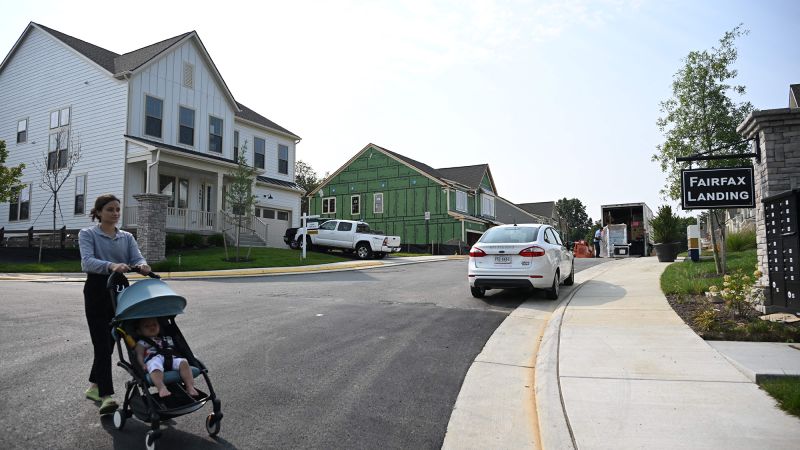Mortgage rates continued to climb this week amid a stronger-than-expected economy.
The 30-year fixed-rate mortgage averaged 7.79% in the week ending October 26, up from 7.63% the week before, according to data from Freddie Mac released Thursday. A year ago, the 30-year fixed-rate was 7.08%.
“For the seventh week in a row, mortgage rates continued to climb toward eight percent, resulting in the longest consecutive rise since the Spring of 2022,” said Sam Khater, Freddie Mac’s chief economist.
Rates have been on a tear in 2023, rising two full percentage points.
“Purchase activity has slowed to a virtual standstill, affordability remains a significant hurdle for many and the only way to address it is lower rates and greater inventory,” he said.
The average mortgage rate is based on mortgage applications that Freddie Mac receives from thousands of lenders across the country. The survey includes only borrowers who put 20% down and have excellent credit. A current buyer’s rate may be different.
Rates moved higher this week following a rise in the 10-year Treasury yield, which has tiptoed around 5%, as the market looks to the upcoming Federal Reserve meeting next week.
Mortgage rates tend to track the yield on 10-year US Treasuries, which move based on a combination of anticipation about the Fed actions, what the Fed actually does and investors’ reactions.
When Treasury yields go up, so do mortgage rates; when they go down, mortgage rates tend to follow. While the Fed does not set the interest rates that borrowers pay on mortgages directly, its actions influence them.
“Though Freddie Mac’s weekly mortgage rate reading has not exceeded 8%, borrowers quoted on the high end of today’s range are likely seeing rates beyond this threshold,” said Hannah Jones, senior economic research analyst at Realtor.com.
Some homebuyers are seeing mortgage rates of 8% and higher making financial headwinds to buying a home even more difficult, said Jones.
She said that for mortgage rates to improve considerably the Fed needs to pause its rate hikes.
“Investors will need to see that economic growth is slowing, which would suggest that inflation is making progress towards 2% and that the Fed can pause, and eventually pivot, their contractionary policy,” said Jones.
Read the full article here
